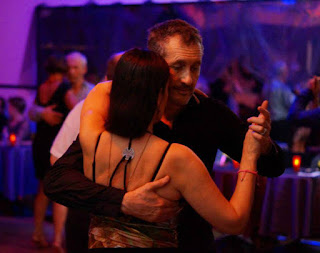 Whatever behavior or cognitive skill developmental psychologists study, only one human behavior does not quite fit into their model. That one thing is dance.
Developmental psychology
Whatever behavior or cognitive skill developmental psychologists study, only one human behavior does not quite fit into their model. That one thing is dance.
Developmental psychology started out as the science of understanding how infants and the very young develop. Now, however, developmental psychology has expanded to study how we keep growing, developing over the course of our entire lifetime. I think that tango dancers would benefit with a scientific look of the developmental course of dancers. For example, I would like to know why one tango dancer's passion goes on for a lifetime and another dancer's intense passion fizzles out in just a few months or years. But whatever developmental psychologists might find, they would have to grapple with the unique nature of dance.
Dance, unlike other behaviors for the majority of adults, requires a
retrograde step back into our childhood. Wouldn't it be wonderful for a person who says they cannot dance to see a film of themselves as they respond spontaneously to music for the very first time as a child? Today's parents are recording these moments on the smart phones, but the majority of the planet have not seen this moment. Wouldn't it be great if we could see our unabashed joy or a sudden level of body/mind skill appear? Other constantly developing skills, such as speaking, skills in logic, social skills, gross and fine motor skills--any other life skills--do not required a
return to childhood to go on with the development of that skill. Dance often does. Unfortunately this return to childhood is required because in many cultures dance is abandoned as children grow up and adults lose all belief in themselves as dancers.
But so what? What is lost if we give up dance in our later childhood? The majority of development psychologists will ask this question with the assumption that dance is not an essential skill, like speaking, walking and logical reasoning. So . . . is this a fair question?
























